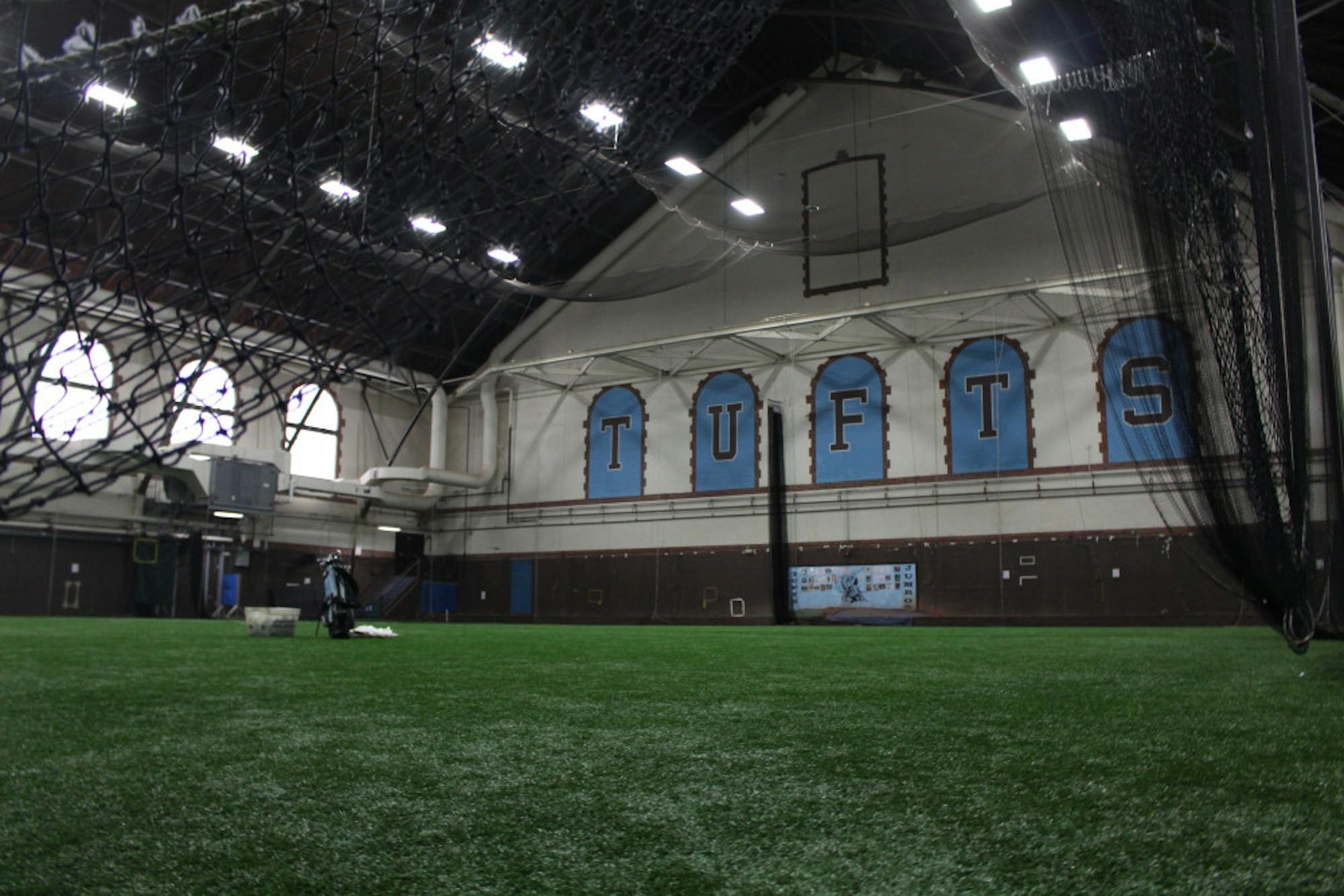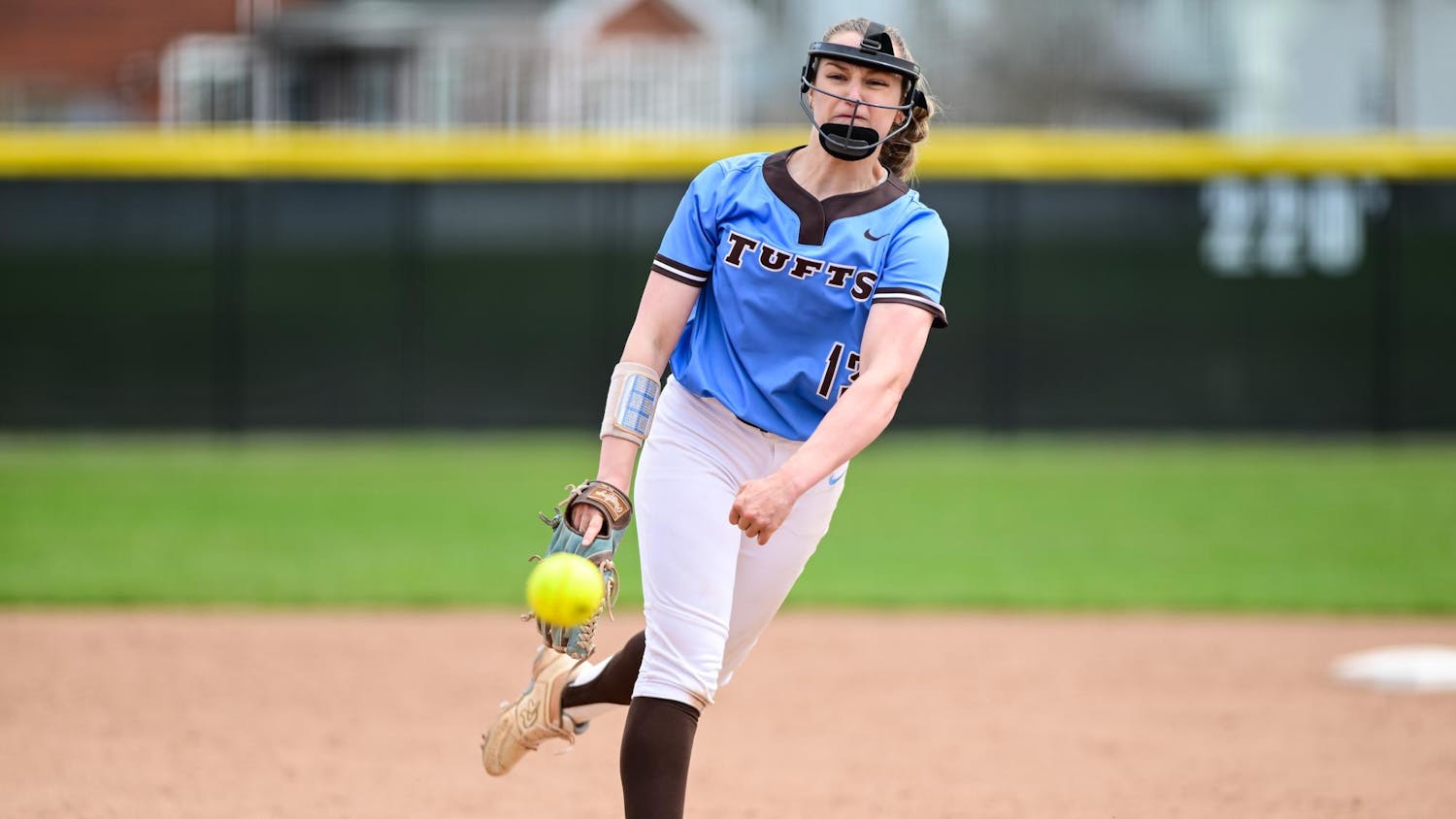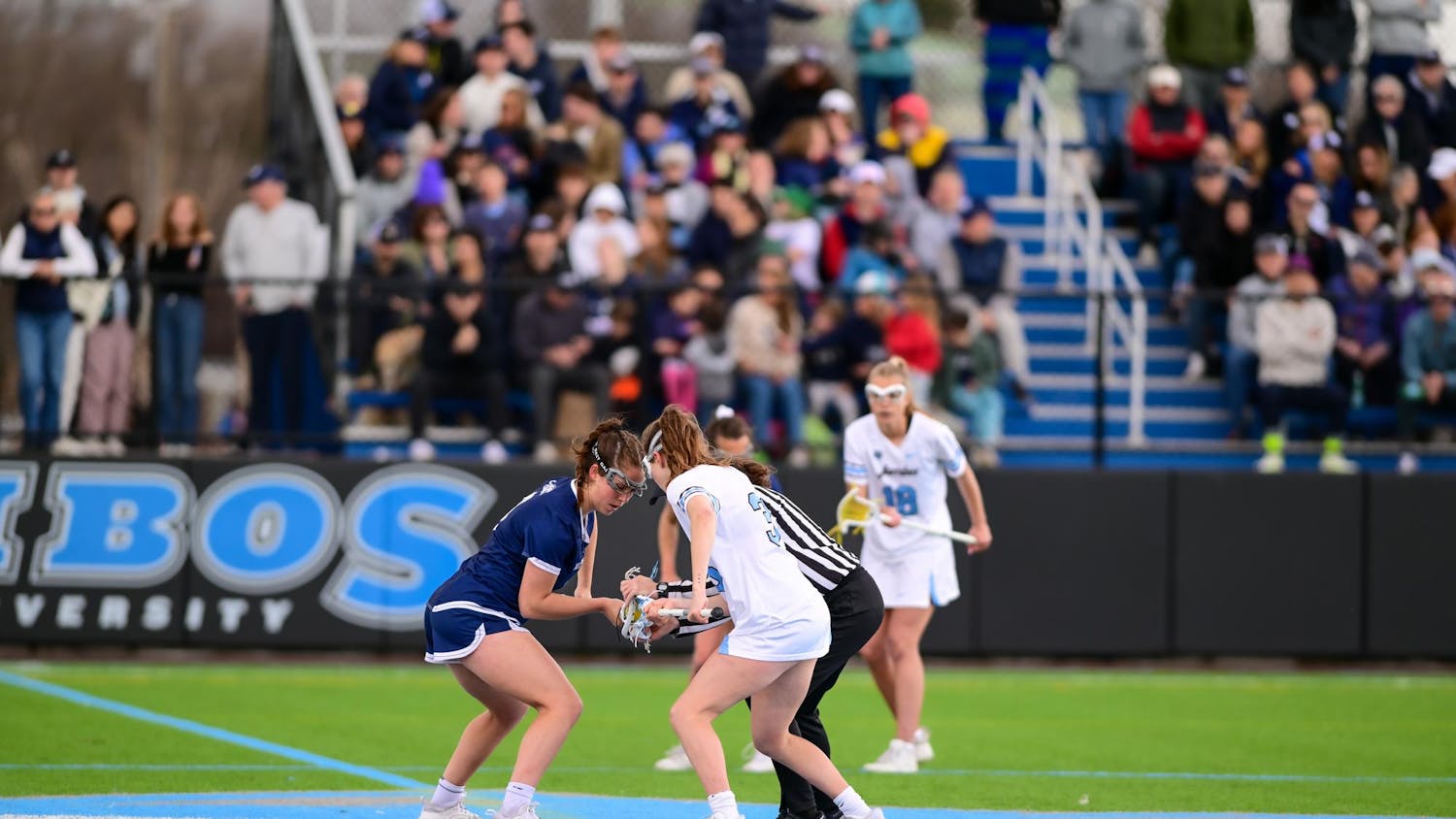Disclaimer: Jack Clohisy is a contributing writer at The Tufts Daily. Jack was not involved in the writing or editing of this article.
For almost a year, Tufts athletics has been in a state of purgatory: limited and distanced practices, uncertainty regarding when competition will resume and teams left waiting for the day when things turn back to normal. For coaches, scheduling, recruiting and connecting with their teams continues to be difficult. In the face of extraordinary circumstances, Tufts coaches have been forced to adapt to the challenges.
Hall of Fame baseball coach John Casey, currently in his 39th season coaching the Jumbos, said that many facets of his job have been different because of COVID-19, including his heightened role as a strong leader for his players during the pandemic.
“It’s really a simple analogy: No matter how bad the storm is, if the captain looks like he knows what he’s doing and he’s not panicking, that calms down the whole ship,” Casey said. “If the captain runs around with his head cut off, everyone goes ‘Oh boy, we’re in trouble.’ That’s your job as a leader. And our kids deserve that leader. They fire me up.”
Presented with the challenge of engaging with athletes while also following COVID-19 guidelines, coaches have taken a variety of approaches. While some have used the time to allow their athletes to focus on schoolwork and extracurriculars, others have seen it as an opportunity to specifically address certain issues on the team. First-year volleyball setter Maddie Yu said her coach hosts Zoom meetings to discuss athlete mental health and issues of diversity.
“Every other week we switch between class meetings with the coaches and individual meetings with the coaches,” Yu said. “Once a week, we have sports psychology meetings. And then, every Friday we do DEI, which is Diversity, Equity, and Inclusion. We get material to read or watch before the meeting and then we discuss them as a team. It’s been really good as a team to get that education and it’s brought people closer, talking about such a complicated topic.”
Sophomore men's track and field hurdler Jack Clohisy gave another example of creative coaching during COVID-19 with his coach’s intensified interest in track around the world.
“The way our coach keeps us engaged is through sending us results from professional track meets,” Clohisy said. “He loves to share results, times, practices, videos, all that stuff. Even talking about our past results and goals from the past. It keeps us involved with the track atmosphere. It makes us aware that track is still happening outside of just us.”
Tina Mattera, the coach of the women’s field hockey team, agreed with the sentiment of holding on to optimism, as she has also creatively adapted to the pandemic. More specifically, this year’s practices have been designed to give her players something fun to do outside, rather than a means to prepare for competition. However, she said she is struggling to form the relationships with players that she relied on heavily in past years.
“The [lack of] connection is the hardest part,” Mattera said. “I love the bus. I always walk around the bus and hang out with the [first-years] and chat with them. I love getting to know their families, the parents, [their] little brother or their dog. I don’t know that right now. The amount of time I spend with a player normally is maybe 20 hours a week, and now it’s three.”
For Casey, the largest challenge has been uncertainty.
“Being completely honest with you, it’s the ‘why’ that hurts the most for the guys and coaches,” Casey said. “Tell me why we’re doing this. It’s really hard when one of your players comes up to you and says ‘Coach, they’re practicing football 500 yards off campus, why can’t we be in larger than a group of ten, why is this happening?' I don’t have the answers, and I feel bad.”
In addition to altering practice plans and team bonding events, coaches’ methods of recruiting have changed drastically. Casey said that it would be very important in the next few years to keep recruiting numbers low. The NCAA is allowing athletes that have lost a competitive season to play an extra year either during graduate school or by saving a semester of classes to graduate later. Given these conditions, Casey and other coaches across the country are faced with the challenge of a growing roster but fewer players leaving the program.
For a coach that relies heavily on connection with potential future athletes, Mattera’s largest struggle with recruiting stems from the lack of in-person interaction.
“I’m such a people person,” Mattera said. “I want to meet the players. If I see someone I like play, I’ll say ‘Hey! Come tour the campus! Bring your mom with you!’ The fact that we can’t have visitors right now makes that hard. I’ve called a few top recruits and said I like their film. But I want to see players in person.”
Despite the challenges to both athletes and coaches alike, Mattera said her focus is to bring the fun back into field hockey for her athletes. She hopes to foster the same spirit her players had when they were children and there was less pressure to succeed. Her effort to provide joy for her athletes has not gone unnoticed. Mattera said she often receives thankful texts from her players after practice and has noticed enhanced levels of gratitude from the team.
“We talk about what a privilege it is to play and how you only get these four years to enjoy this experience," Mattera said. “That’s going to be so magnified. Something has been taken away from them. And as they’re getting it back, they’re appreciating it more because they didn’t have it. We’ll take that with us going forward for a long time. Just appreciating the experience and the ability to be able to compete.”
As COVID-19 cases continue to trend downward, coaches will be able to interact with student-athletes on a more regular basis. Hopefully, once more restrictions are lifted, teams will have fulfilling seasons, cognizant of how lucky they are to play.






